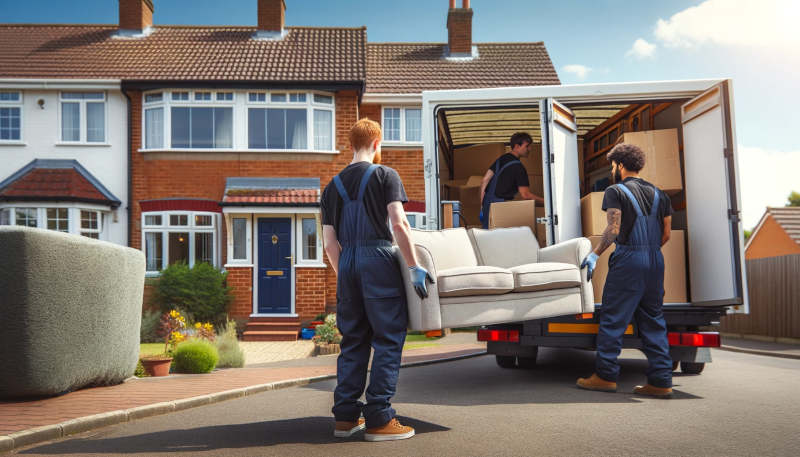Introduction
Purchasing a home can be one of the most exciting yet daunting experiences of your life, and one of those daunting elements is working out the costs of buying a house. This article delves into the different costs for consideration when buying your new home.
Contents
- Deposit
- Stamp Duty
- Surveyors Fee
- Mortgage Valuation Fee
- Mortgage Arrangement Fee
- Removals
- Storage
- Legal Fees
Deposit
Your deposit is probably the biggest single up front cost when buying a house. There was a time when you could get a mortgage without needing to put down a deposit at all, but that opened up a whole can of worms and contributed to the financial crash around 2007. Since then, a typical minimum deposit has been 10% of the purchase price, although there are some mortgage lenders that will lend based on just a 5% deposit.
Bear in mind though that the lower the deposit, the more you will need to borrow from your mortgage lender, which also results in a higher interest rate. So if you're able to put down more as a deposit, this will help make your monthly mortgage payments cheaper.
Stamp Duty
Stamp Duty (also known as SDLT or Stamp Duty Land Tax) is essentially a tax charged on property transactions, and its rates are determined by the property's value. The more expensive the house, the more stamp duty you will pay. There are circumstances where you will pay no stamp duty at all, for example, if the property you are purchasing is less than £125,000, or less than £300,000 if you are a first time buyer.
Stamp Duty is calculated on a stepped basis, so if you purchase a house for £250,000, you will pay 0% on the first £125,000, and then 2% on the remaining £125,000. In this example, the stamp duty cost would be £2,500.
The table below shows the stamp duty rates at different property values.
| Property purchase price | Rate |
|---|---|
| Up to £125,000 | 0% |
| Up to £300,000 for first-time buyers | 0% |
| £125,0001 – £250,000 | 2% |
| £250,001 – £925,000 | 5% |
| £925,001 – £1,500,000 | 10% |
| £1,500,001 + | 12% |
Surveyors Fee
Property surveys are essential for assessing a property's condition and identifying potential issues before committing to buy. The surveyor's fee covers the cost of their expertise in evaluating the property's condition and structural integrity.
There are different levels of survey, with costs ranging from £400 to £1,000. The level of survey required will much depend on the type of house you are purchasing. For example, a new build home that is less than 5 years old is less likely to have structural problems compared with a house that is over 100 years old, so a cheaper survey would be all that is required for a newer home.

Mortgage Valuation Fee
When securing a mortgage, lenders often require a mortgage valuation to assess the property's value. The mortgage valuation fee covers this assessment and is typically paid by the buyer. This is to make sure that the amount of money they are lending you compliments the value of the property. This typically costs around £100.
Mortgage Arrangement Fee
A mortgage arrangement fee is sometimes charged by lenders for setting up the mortgage. It's a one-time cost that can be paid up front or absorbed into the mortgage. Lenders tend to offer more favourable rates if you are willing to pay an arrangement fee. For example, a lender may offer an interest rate of 4.69% with a £0 arrangement fee, however if you are willing to pay a £995 arrangement fee, they may offer you a 4.49% rate.
Removals
The most labour intensive part of buying a property is the moving part. If you're buying your first house and moving out of your parents house, this is normally much easier as there is usually only a single room's worth of belongings to transport. However, if you're moving from one property to another, you need to consider how this will be facilitated.
There are a few options here. One option is the 'DIY' route, where you use your own transport or hire some kind of van or truck for the day and start lugging your belongings onto the vehicle and transport them to the new house. This is normally the cheapest option as you're only incurring the cost of fuel and use of the vehicle. This can cost around £200.

Another option would be to use a removal company. They will turn up on the day and load all of your belongings out of your old home onto their removal truck and transport them to your new home. This is then followed by them unloading your belongings on arrival at your new house or flat. This is more expensive than the DIY route, but at least you will still have your backs intact afterwards.
If you don't feel like doing anything at all, some removal companies will provide the full packing and removal service, where they will turn up to your house and actually pack your house into boxes before transporting them. This is the most expensive option as it involves a lot more work from the removal company.
Other things to factor in when costing up removals is things such as the amount of belongings, distance and any additional services required. A typical two bedroom house would cost around £600-£800 for a removal service, which can rise to £1,000-£1,200 if you require additional services such as packing.
Storage
This would usually only be necessary if there was a transition period between moving home, for example if you were moving out of your current home on a certain date but then there was a period of time before moving into your new home. For those in transitional housing situations, storage costs may become a necessary expense. Look for local storage facilities, and most will have a quotation calculator or form on their website. For a small house, you may be looking at around £100 per month.
Legal Fees
Purchasing a property will involve a conveyancing solicitor to manage the transaction, ensuring that the right legal documentation is completed and any necessary checks are carried out prior to completing the property purchase. This section outlines the different costs associated with the legal side of buying a house.
The conveyancing solicitor will charge a fee for their service, which involves handling all of the necessary paperwork and tasks for transferring ownership of a property. This fee will normally depend on the purchase price of the property, and can vary from as low as £200 for a small house under £100,000, to a fee of over £1,500 for large houses that are £1m+.

On top of this, there will be a number of disbursements that are charged for as part of the conveyancing process, such as searches, identification fees and electronic transfer fees.
Typically, the legal fees involved in a property transaction are around £2,000.
If you're looking for accurate legal costs for buying a house, you can use our quote tool to obtain quotes from local, reputable conveyancers.
Summary
Buying a house is exciting yet daunting at the same time, but making sure you've factored in all of the relevant costs of buying a home is imperative in ensuring that the transaction is as stress free as possible.
